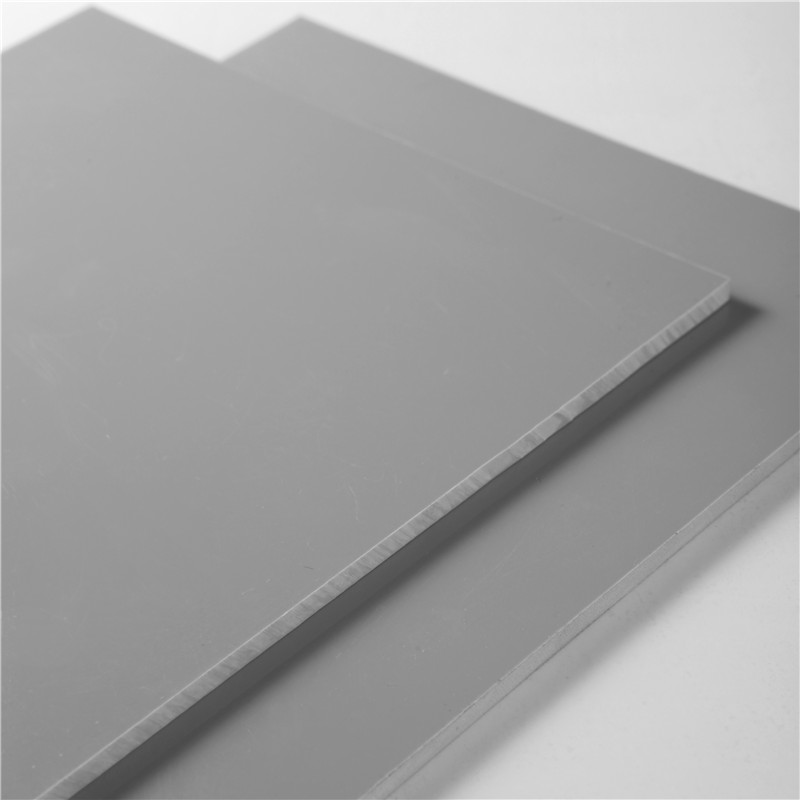Jul . 31, 2024 23:11 Back to list
150mm PVC Pipe Specifications and Applications for Construction and Industrial Use Explained
Understanding 150mm PVC Pipe Applications, Benefits, and Installation
Polyvinyl Chloride (PVC) pipes are among the most popular choices for various plumbing and construction applications due to their durability, cost-effectiveness, and versatility. Among the different sizes, the 150mm PVC pipe stands out for its robust capabilities and is commonly used in wastewater management, drainage systems, and industrial applications.
What is 150mm PVC Pipe?
The 150mm PVC pipe refers to a pipe with a nominal diameter of 150 millimeters (approximately 6 inches). This size is particularly beneficial in applications requiring a larger flow capacity. The pipe is often manufactured according to industry standards, ensuring consistency and quality across products. Typically, 150mm PVC pipes are available in different pressure ratings, making them suitable for various applications from low-pressure drainage systems to high-pressure contexts.
Applications of 150mm PVC Pipe
1. Wastewater Management One of the primary applications of 150mm PVC pipes is in wastewater systems. They are commonly used for sewer lines, allowing for the efficient transport of sewage and other wastewater materials. The smooth interior surface of PVC pipes helps reduce friction, enabling faster flow rates compared to traditional materials.
2. Stormwater Drainage In urban planning, effective stormwater management is crucial to prevent flooding. 150mm PVC pipes can facilitate the efficient drainage of stormwater, directing it away from low-lying areas. These pipes are resistant to corrosion and chemical damage, making them ideal for environments that are exposed to various elements.
3. Irrigation Systems Agriculture and landscaping benefit significantly from the use of PVC pipes. A 150mm pipe provides a substantial flow rate, making it suitable for large-scale irrigation setups. PVC's lightweight nature also makes installation easier and reduces labor costs.
4. Industrial Applications Many industries utilize 150mm PVC pipes for transporting chemicals, slurries, and other materials. The materials are resistant to a range of chemicals, enhancing their durability and performance in harsh conditions.
150mm pvc pipe

Benefits of Using 150mm PVC Pipe
1. Durability PVC pipes are resistant to decay, rust, and corrosion. This longevity reduces the need for frequent replacements, saving time and money in the long run.
2. Cost-Effectiveness Compared to other materials such as metal, PVC is less expensive both in terms of initial purchase price and installation costs. Its lightweight nature means lower transportation costs and simpler handling during installation.
3. Ease of Installation The installation of PVC pipes is straightforward. They can be easily cut and joined using solvent cement or mechanical fittings, making them ideal for both professionals and DIY enthusiasts.
4. Environmentally Friendly PVC is a recyclable material, and many manufacturers use recycled content in the production of PVC pipes. Additionally, the energy-efficient production process further reduces the environmental impact associated with these pipes.
5. Resistance to Biological Growth Unlike some other pipe materials, PVC does not provide a substrate for bacteria and algae to grow. This feature is particularly important in applications involving potable water and effluent transport, helping to maintain hygiene and safety.
Conclusion
In summary, a 150mm PVC pipe is a versatile and reliable option for various applications ranging from wastewater management to industrial uses. Its numerous advantages, such as durability, cost-effectiveness, and ease of installation make it a preferred choice in modern plumbing and construction projects. As industries continue to evolve, the demand for efficient and sustainable piping solutions like 150mm PVC pipes will likely increase, demonstrating their essential role in contemporary infrastructure. Whether for residential, commercial, or industrial purposes, investing in quality PVC piping is a decision that yields long-term benefits.
-
High-Quality PPR Pipes and Fittings Durable ERA PPR & PVC PPR Solutions
NewsJul.08,2025
-
Black HDPE Cutting Board - Durable, Non-Porous & Food Safe HDPE Plastic Cutting Board
NewsJul.08,2025
-
High-Quality CPVC Panel Durable HDPE & PVC Panels Supplier
NewsJul.08,2025
-
Double PE Welding Rod Supplier - High Strength, Durable & Versatile Welding Solutions
NewsJul.07,2025
-
High-Quality PVC-O Pipe Supplier Durable 75mm PVC Pipe & Connections Leading PVC Pipe Company
NewsJul.07,2025
-
HDPE Drainage Pipe Supplier – Durable & Corrosion-Resistant Solutions
NewsJul.06,2025

